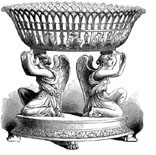
Should Classes in Catholic Colleges & Universities Begin With Prayer?
IF CRUCIFIXES IN CLASSROOMS, WHY NOT PRAYER?
We’ve heard about the campaign by students at Georgetown to get crucifixes placed in the classrooms of that Jesuit university as visible signs of the school’s Catholic identity. There is another sign of Catholicism in the classroom — an audible sign — that has a long history and whose renewal interests me. I invite you to consider with me whether teachers in Catholic colleges and universities should begin their classes with a prayer.
I have spent the past 20 years in Catholic colleges and universities, as an undergraduate, graduate student, and finally professor, and I must admit to a certain inattentiveness during much of that time to the topic on which I am now writing. I’m not particularly absent-minded as professors go. My plea, I guess, must be that sometimes things are too close to be noticed, or so generally unremarked as to be unremarkable. Prayer in the classroom was like that for me.
When I was an undergraduate, a few of my teachers — fewer than half — began class with a prayer, and I simply accepted that there were those who prayed in class and those who didn’t. But not one of my graduate seminars began with a prayer. And when I became a professor myself, I did not even think of beginning my classes with a prayer. I knew no one who did. The practice had simply evaporated.
The whole matter lay dormant for me until one day in the faculty dining room, where a few of us were discussing incredulously the latest news report that some public school graduation had been forbidden to address God in some generic prayer. One of my colleagues spoke vigorously in support of the option to pray in public school, in classrooms and at ceremonies. It occurred to me to ask him if he began his classes with a prayer. He admitted that he did not. Of course, I did not either. In fact, as I asked around the table it turned out that none of us opining on the practices of that distant high school prayed in class here at home. Where prayer was outlawed, we thought it should be allowed; but in our Catholic college, where it is legal, we quietly deprived ourselves of it.
You May Also Enjoy
Catholic academics betrayed the faith with the Land O'Lakes Statement in 1967, which has spread error throughout the Church ever since.
Education steeped in transcendental Beauty and the Great Books of history is replaced by a dictatorial ugliness that flattens the passions and rids the heart of love.
The mental-health professions in recent years have changed their opinion of religion and now regard faith as a reliable predictor of well-being.

